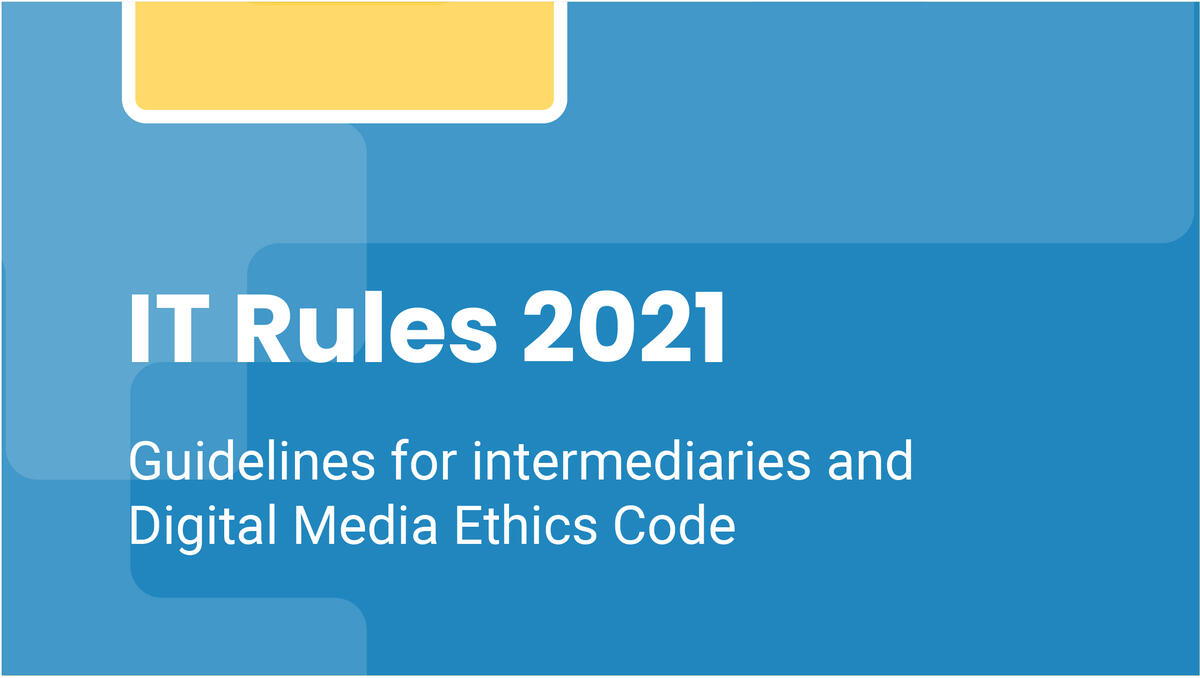
Jul 2021
28 Mon
29 Tue
30 Wed
1 Thu
2 Fri
3 Sat 04:00 PM – 06:00 PM IST
4 Sun
Oct 2021
25 Mon
26 Tue
27 Wed
28 Thu 07:00 PM – 08:00 PM IST
29 Fri
30 Sat
31 Sun

Jul 2021
28 Mon
29 Tue
30 Wed
1 Thu
2 Fri
3 Sat 04:00 PM – 06:00 PM IST
4 Sun
Oct 2021
25 Mon
26 Tue
27 Wed
28 Thu 07:00 PM – 08:00 PM IST
29 Fri
30 Sat
31 Sun
Udbhav Tiwari
@udbhavtiwari
Submitted Jul 1, 2021
The Government of India (GoI), Ministry of Electronics and Information Technology (MEITY), and the Ministry of Information and Broadcasting (MIB) jointly released the new IT Rules 2021, with significant impact on Intermediaries. The new rules impact OTT and digital media streaming services, online news outlets, social media and platforms, messaging services, among others. The new rules are available on the Gazette of India website - http://egazette.nic.in/WriteReadData/2021/225464.pdf
In this session, we will go over:
For a detailed background tot this session, read Privacy Mode’s ethnographic report on IT Rules.
Udbhav Tiwari is Public Policy Advisor at Mozilla.
Jul 2021
28 Mon
29 Tue
30 Wed
1 Thu
2 Fri
3 Sat 04:00 PM – 06:00 PM IST
4 Sun
Oct 2021
25 Mon
26 Tue
27 Wed
28 Thu 07:00 PM – 08:00 PM IST
29 Fri
30 Sat
31 Sun
Hosted by
Supported by
Promoted
Promoted
{{ gettext('Login to leave a comment') }}
{{ gettext('Post a comment…') }}{{ errorMsg }}
{{ gettext('No comments posted yet') }}